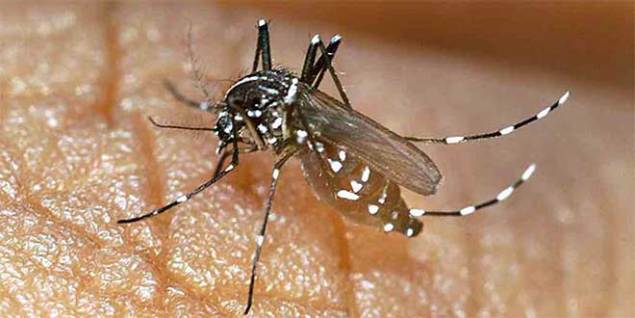
The likelihood of us being bitten by mosquitoes could be down to our genes, a new study suggests.
To understand whether the traits that make a person more or less attractive to mosquitoes are genetic—odors, for instance—researchers conducted a study looking at 18 sets of identical twins and 19 sets of non-identical twins. Their findings were published in the journal PLOS ONE.
The researchers released mosquitoes into a Y shaped tube that allowed the mosquito pick a side to fly down. The twins’ hands were at either end of the tube (see photo below). If the mosquitoes were attracted to the hands’ odor, they would fly toward them and if they were repelled by the hands they would fly away from them.

Identical twin sisters partake in an experiment to see how attractive their hands are to mosquitoes (Photo Credit: London School of Hygiene & Tropical Medicine).
Interestingly, identical twins were more similar in the level of attractiveness to mosquitoes than non-identical twins, which the researchers suggest could mean that genes play a role. It’s possible that identical twins have very similar odors since they are genetically exactly the same.
Though the sample size is small, the researchers say the findings have implications for future mosquito bite prevention. While they may be small in size, the mosquito is widely considered to be the deadliest animal in the world, killing roughly 725,000 people annually. With these new findings, the researchers now have their sights set on conquering diseases like malaria, yellow fever, and West Nile Virus, three of the most common and deadly illnesses carried by mosquitoes.
“By investigating the genetic mechanism behind attractiveness to biting insects such as mosquitoes we can move closer to using this knowledge for better ways of keeping us safe from bites and the diseases insects can spread through bites,” said study author James Logan, a senior lecturer at the London School of Hygiene & Tropical Medicine, in a statement. “In the future we may even be able to take a pill which will enhance the production of natural repellents by the body and ultimately replace skin lotions.”
